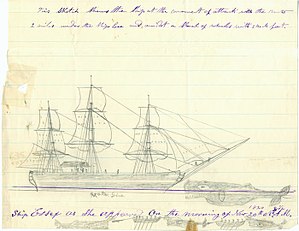 Sometimes I think the difference between making (creating) meaning and finding it is the difference between reality and wishful thinking. Sometimes I think it divides the non-believers from the believers. And sometimes I think it might be nothing more than a matter of semantics.
Sometimes I think the difference between making (creating) meaning and finding it is the difference between reality and wishful thinking. Sometimes I think it divides the non-believers from the believers. And sometimes I think it might be nothing more than a matter of semantics.
The idea of finding meaning implies to me that meaning, although intangible, is inherent in situations, circumstances, relationships, events, and things. It comes pre-loaded, so to speak, as a hidden file, and it’s our job to locate, download, and access it. As I’ve written before, this sort of thing is not a game I’m particularly interested in playing. It’s like a metaphysical scavenger hunt. And the huge question it raises is if meaning is inherent, by what means did it become part of the stuff of our human lives? This view of meaning pretty much implies the existence of an extra-human force or being as creator of the game of life we all must play.
The Meaning of Our Individual Lives
Both James Hillman, a Jungian psychologist, and Viktor Frankl, an existentialist–as two examples–were convinced there is a reason for our existence and that we are responsible to that reason.
From The Souls’ Code by James Hillman:
Each person enters the world called.
[This book] does speak to the feelings that there is a reason my unique person is here and that there are things I must attend to beyond the daily round and that give the daily round its reason, feelings that the world somehow wants me to be here, that I am answerable to an innate image, which I am filling out in my biography.
You are born with a character; it is given; a gift, as the old stories say, from the guardians upon your birth.
From Man’s Search for Meaning by Viktor Frankl, who survived several years in Auschwitz:
[M]an is a responsible creature and must actualize the potential meaning of his life.
I think the meaning of our existence is not invented by ourselves, but rather detected.
The majority…consider themselves accountable before God; they represent those who do not interpret their own lives merely in terms of a task assigned to them but also in terms of the taskmaster who has assigned it to them.
There are those who believe God has very specific plans for them. There are those who believe they are being directed by spirit or the universe to travel particular paths in life and to have certain experiences. The idea that everything happens for a reason may be their attempt at accepting unpleasant circumstances by assigning meaning to them, even if that meaning isn’t yet know. They are all are entitled to their views, of course, and the meaning they find in their lives. But obviously not everyone is religious or even spiritual. Not everyone believes in the existence of a “taskmaster” to whom we are responsible.
I don’t mean to deny the considerable mystery surrounding our existence. To the contrary, I see much that is mysterious and am glad for the mystery. I don’t know all there is to know, and neither does anyone else. Perhaps there actually are celestial guiding forces at work in our lives pushing or urging us in one direction or another.
On the other hand, what if life is empty and meaningless?
More next time.



